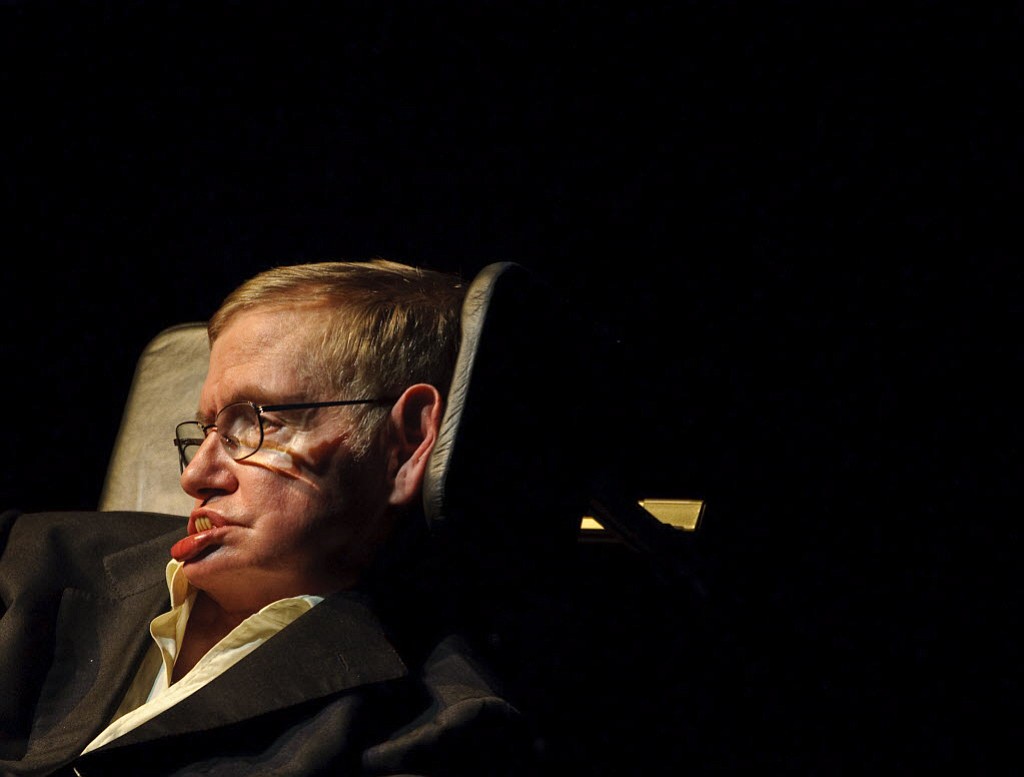When it comes to discussing the dangers of artificial intelligence, the renowned theoretical physicist Stephen Hawking doesn’t exactly mince words.
“I think the development of full artificial intelligence could spell the end of the human race,” the Cambridge University professor told the BBC in an interview that touched upon everything from online privacy to his affinity for his robotic-sounding voice.
Despite its current usefulness, he cautioned, further developing AI could prove a fatal mistake.
“Once humans develop artificial intelligence, it will take off on its own and redesign itself at an ever-increasing rate,” Hawking warned for the second time in recent months. “Humans, who are limited by slow biological evolution, couldn’t compete and would be superseded.”
It’s not that AI isn’t useful, as Hawking well knows.
The cosmologist lives with the motor neuron disease amyotrophic lateral sclerosis or Lou Gehrig’s Disease. As his disease has progressed, he has become almost entirely paralyzed. And in 1985, after contracting pneumonia, Hawking underwent a tracheotomy that left him unable to speak. He is only able to communicate verbally using the assistance of a computer.
After initially losing his voice, Hawking communicated using a spelling card that allowed him to indicate words by lifting his eyebrows, according to detailed retelling of Hawking’s struggle to communicate in Wired. Next came a speech synthesizer linked to an Apple computer that allowed Hawking to communicate at a rate of 15 words per minute. In 2008, when Hawking’s hand became too weak to operate the system, he switched to a newly devised “cheek switch,” according to the magazine:
Attached to his glasses, it could detect, via a low infrared beam, when Hawking tensed his cheek muscle. Since then, Hawking has achieved the feat of writing emails, browsing the Internet, writing books and speaking using only one muscle.
In December, Hawking and Intel announced that he is now using the latest iteration of a system is known as ACAT — or the Assistive Context Aware Toolkit — which uses a more advanced form of artificial intelligence. The company has worked on the technology since 2008.
Years of testing and upgrading with the Intel team since the partnership with Hawking began eventually led to ACAT. Hawking told the BBC that the system, which represents a significant upgrade, uses predictive text based on an analysis of the English language and his own speech patterns. He expects it to speed up his writing and he can use the system to access to email and the Internet, he noted.
Intel is now giving researchers and tech developers the opportunity to build on the platform, according to CNET.
The Intel platform will become available for free to researchers and developers this month, with the hope that it could become the foundation for a modern communication system to help people with motor neuron diseases and quadriplegia. Intel’s new toolkit can be customized for different users, and be enabled by touch, eye blinks, eyebrow movements or other inputs for communication.
Even so, Hawking said he’s still fond of his old technology.
“My old system worked well, and I wrote five books with it, including ‘A Brief History of Time,’ ” he said, noting that the book remained on the London Sunday Times list for years.
Hawking said he could change his robotic-sounding voice, but chooses not to.



